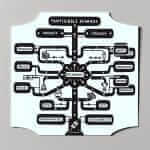As an IELTS instructor with over 20 years of experience, I’ve encountered countless questions that frequently pop up in the IELTS Speaking test. One such question, seemingly simple yet surprisingly nuanced, is “Do you like tea or coffee?” While it might appear straightforward, this question offers a fantastic opportunity to showcase your English proficiency and impress the examiner.
Unpacking the “Do You Like Tea or Coffee?” Question
This question isn’t merely about stating your beverage preference. It’s a springboard to demonstrate your ability to:
- Express preferences clearly and concisely: Can you articulate your liking for tea, coffee, or neither in a natural and engaging manner?
- Provide reasons and elaborate: What is it about tea or coffee that you enjoy or dislike? This is where you can showcase your vocabulary related to taste, aroma, and personal experiences.
- Engage in a conversation: The examiner might ask follow-up questions based on your response. Are you prepared to maintain a natural flow of conversation and express your thoughts coherently?
Navigating the “Do You Like Tea or Coffee?” Terrain
Here’s a breakdown of how to approach this question strategically:
1. State your Preference Clearly
Begin by directly answering the question. Use clear and confident language:
- “I’m definitely a coffee person!”
- “I’m more of a tea drinker myself.”
- “To be honest, I’m not particularly fond of either.”
2. Provide Reasons and Elaborate
This is where you flesh out your answer and showcase your language skills. Consider these aspects:
- Taste and Aroma: Describe the taste and aroma of your preferred beverage using descriptive adjectives.
- “I love the rich aroma and slightly bitter taste of black coffee.”
- “I find herbal teas very soothing. I enjoy the floral notes of chamomile tea.”
- Personal Experiences: Connect your preference to personal anecdotes or cultural experiences.
- “Growing up, my family had a tradition of drinking tea together every evening.”
- “I associate the smell of freshly brewed coffee with cozy mornings.”
- Effects and Benefits: Mention how tea or coffee makes you feel.
- “Coffee helps me feel more alert and focused, especially in the morning.”
- “I find that a cup of herbal tea helps me unwind after a long day.”
 tea and coffee
tea and coffee
3. Be Prepared for Follow-Up Questions
The examiner might delve deeper into your response with questions like:
- “What kind of coffee/tea do you usually drink?”
- “Where do you usually have coffee/tea?”
- “Do you have any special memories related to coffee/tea?”
Prepare for these possibilities by thinking about your preferences in more detail.
Sample Responses
Here are a few examples to illustrate how to answer effectively:
Example 1: “Do you like tea or coffee?”
“I’m a huge coffee enthusiast! I love the rich aroma and the slight bitterness of black coffee. It really helps me kickstart my day and feel more energized. I usually have a cup or two in the morning, and sometimes I treat myself to a cappuccino in the afternoon.”
Example 2: “Do you like tea or coffee?”
“I’m more of a tea person. I find it very soothing and comforting. My favorite is green tea. I love its delicate flavor and the fact that it’s packed with antioxidants. I often have a cup of green tea in the evening while reading a book.”
Example 3: “Do you like tea or coffee?”
“To be honest, I’m not particularly fond of either. I’m trying to cut down on my caffeine intake, so I mostly stick to water or juice. But if I had to choose, I’d probably go for a herbal tea, perhaps chamomile, as I find it quite relaxing.”
Final Tips
- Speak naturally and confidently. Avoid memorizing responses.
- Use a variety of vocabulary to describe your preferences and experiences.
- Maintain a conversational flow and be prepared for follow-up questions.
By following these tips, you can turn a seemingly simple question like “Do you like tea or coffee?” into an opportunity to showcase your English fluency and impress the examiner. Good luck with your IELTS preparation!


